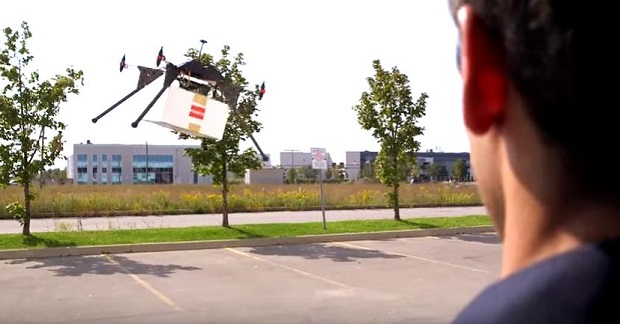The skies appear to have opened up a bit more for Canadian drone start-up company after it chalked up a couple of milestones a few days ago.
Drone Delivery Canada, a Vaughan, Ont.-based unmanned aerial vehicle firm which is positioning its UAV platform for use as a software-as-a-service (SaaS) tool for government and corporate organizations, today announced that it has secured additional test flight certification from Transport Canada.
The latest Special Flight Operations Certificate (SFOC) will allow DDC to expand its current drone delivery testing program within Southern Ontario and accelerate its commercial testing in the Canadian skies.
This brings to three, the number of SFOCs which the company has secured. These testing licenses are a critical component in the licensing path for DDC as it works towards receiving its operator status from the Canadian regulators to commence commercial operations.
Related Content
Critical naval roles seen for underwater drones
Armed drones to play greater role in Air Force
Canadian firms partner with Danish drone maker in UAV venture
It’s welcome news for the company which just last week also announced that it has entered into a sponsored research and collaboration agreement with the University of Toronto and the Defence Research and Development Canada (DRDC). DRDC involvement was made possible by the Natural Sciences and Engineering Research Council of Canada (NSERC) Collaborative Research and Development granting program.
Under the agreement, DDC will work with the U of T and DRDC to jointly develop a vision-based navigation solution that will enable UAVs to safely navigate without the reliance on GPS technology.
DDC intends to launch its platform first in Canada’s northern communities. The plan is to use DDC’s drones to deliver supplies to indigenous communities in remote Canadian locations to foster economic sustainability and provide greater accessibility to these communities where ever possible, according to Tony Di Benedetto, CEO of Drone Delivery Canada.
The partnership with DRDC and the U of T will provide the company with leading technology in the drone auto-pilot Beyond Visual Line of Sight (BVLOS) space. DDC says this will enable its UAVs to safely navigate without the reliance of global positioning systems (GPS) technology.
The technology that comes out of this initiative will be integrated into DDC’s proprietary FLYTE autopilot system.
The project will be co-led by Prof. Angela Schoellig and Prof. Tim Barfoot of U of T’s Institute of Aerospace Studies (UTIAS).
Schoellig heads the Dynamic Systems Lab at UTIAS. She is also an associate director of the newly founded Center for Aerial Robotics Research and Education (CARRE) at U of T. With her team, she conducts research on the interface of robotics, controls and machine learning.
Schoellig has been working with aerial vehicles for the past eight years. More recently, she applied her motion planning, control and learning algorithms to self-driving vehicles.
Barfoot holds a Canada research chair (Tier II) in autonomous space robotics. He is an expert in vision-based navigation and is the principal investigator of the Autonomous Space Robotics Lab (ASRL) at UTIAS.
“We are working on this next generation BVLOS (beyond visual line of sight) drone technology with some of Canada’s smartest minds”, said Benedetto. “This collaboration will greatly accelerate our development of vision-based navigation technology for our FLYTE software management and auto-pilot systems required for commercialization.”

